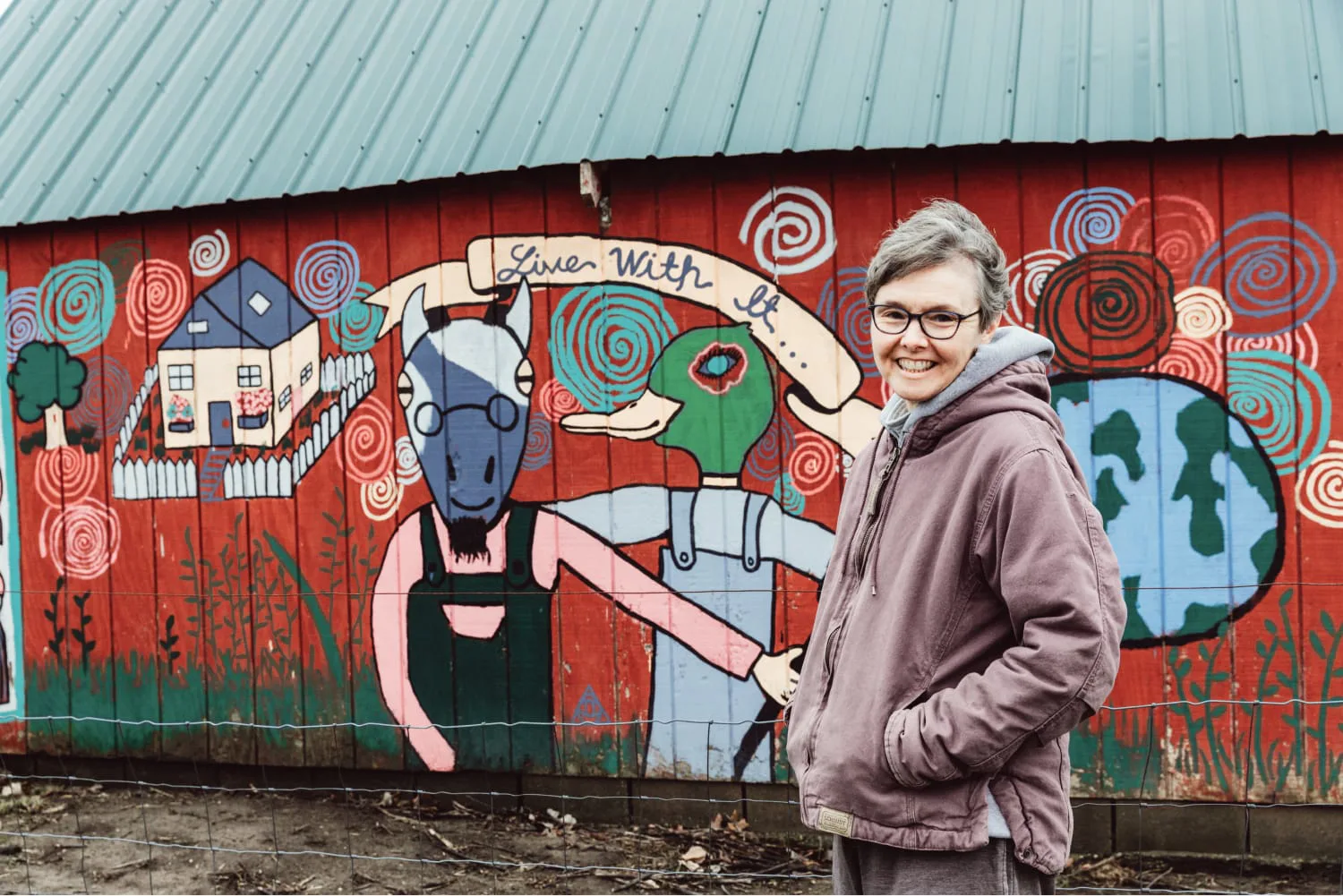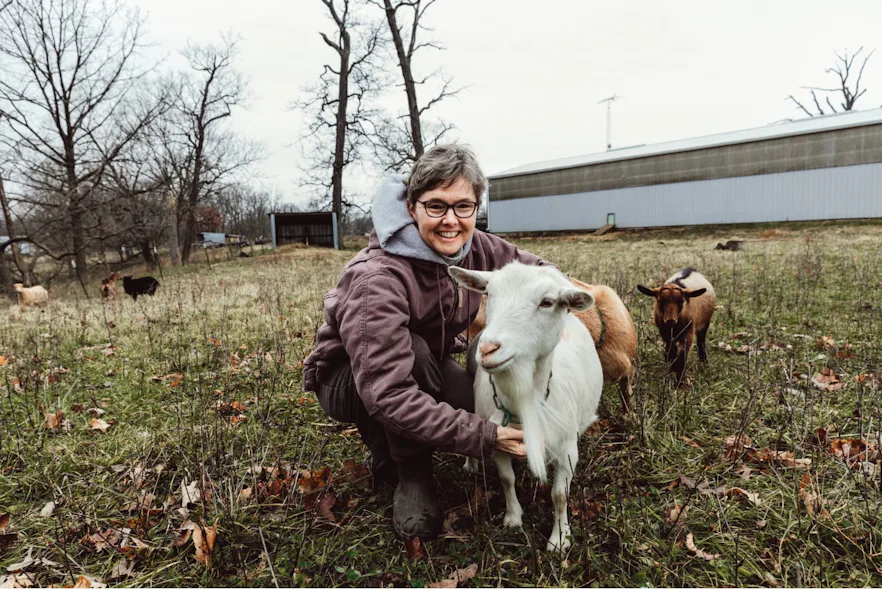The goats were dying. And Deborah had no idea why.
She was heartbroken every time she stepped out for a morning feeding on her homestead – 32 acres “in the middle of nowhere” in Cornell, IL – only to find another lifeless goat. She’ll never forget the pain of watching new baby goats fade away just hours after entering the world.
She called every vet she could find, crying, “You have to help me. I have to know why my goats are dying.” Most told her sorry, they only saw dogs and cats. She finally found a lab that agreed to help, but only if she performed a kind of goat autopsy. With the help of her youngest daughter, who was 12 at the time, Deborah grabbed a scalpel and began. When her daughter asked, “Do you know what you’re doing?” Deborah replied, “Nope!”
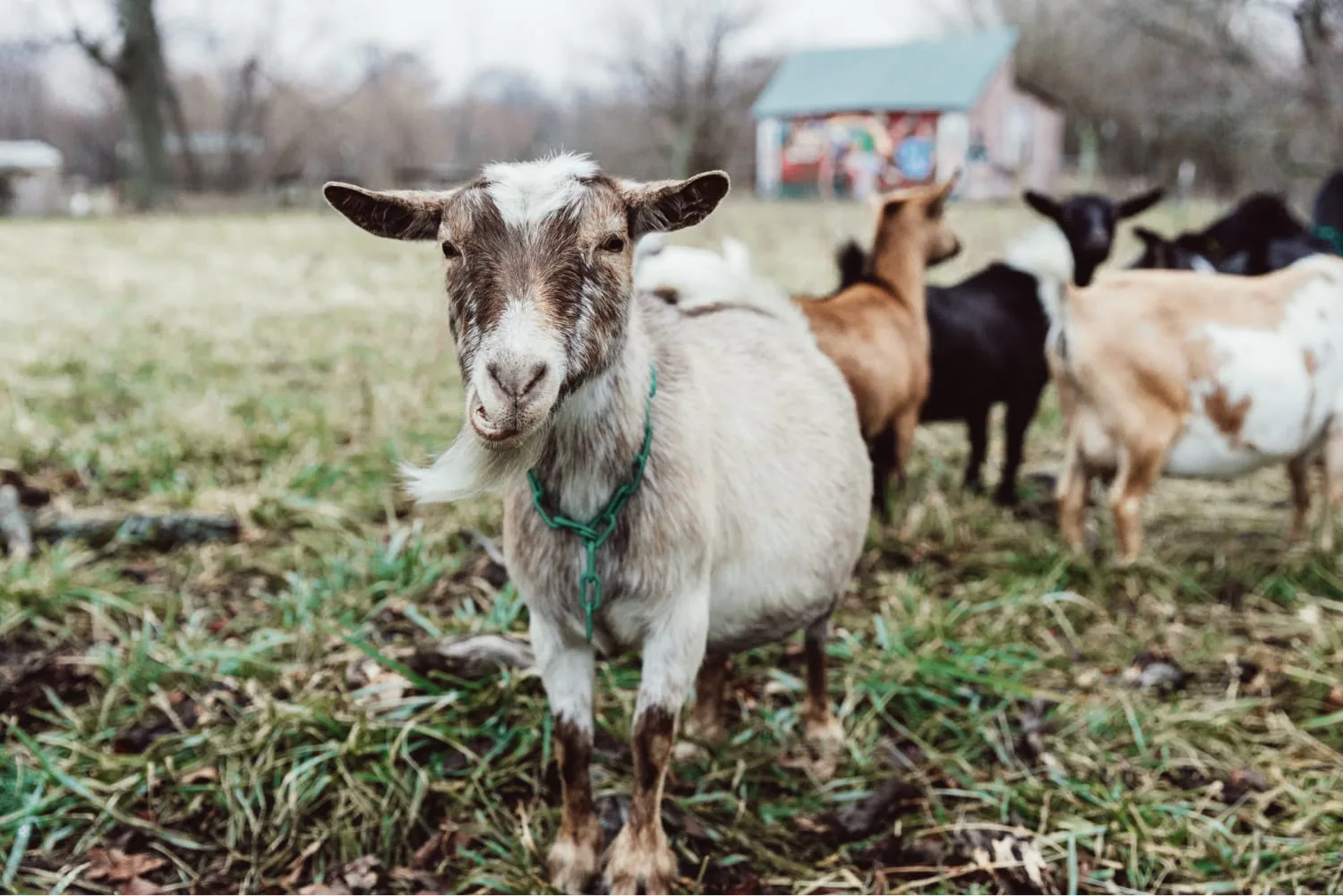
Deborah successfully sent the lab what they needed, and before long she learned that her goats had copper deficiency – a mystery it turns out other goat owners were dealing with too. She started doing intensive research through the university library and implemented what she learned to save her goats.
Deborah didn’t know then that her dedication would evolve into an online business that would save goats all over the world.
“Hotels don’t allow chickens.”
Deborah dreamed of having a homestead after she got pregnant with her first child. She wanted to eat really healthy, but in the early 90’s it was hard to find health food stores in the Chicago suburbs where they lived, and what they could find was really expensive. “We started talking about moving to the country so we could grow our own food organically.” She also loved the idea of her kids growing up in the country.
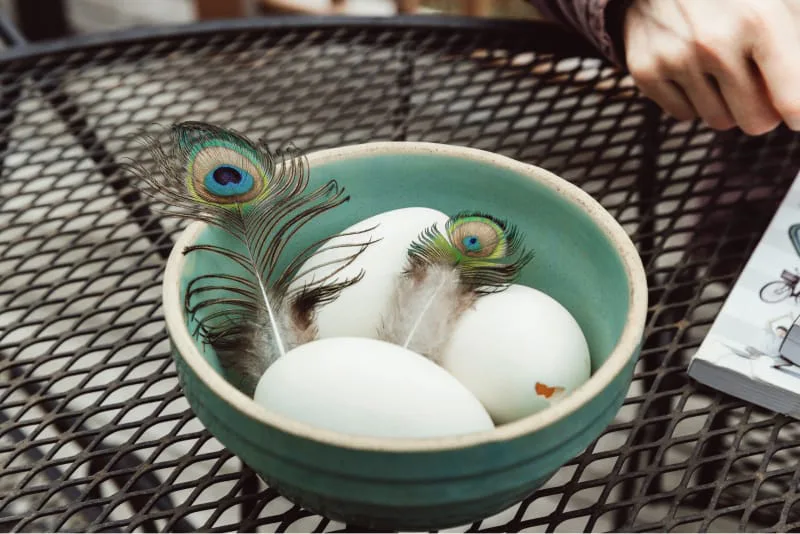
They talked about this dream for thirteen years.
Her firstborn was now 13-years-old and Deborah realized that if she didn’t move to the country now her kids would never have the chance to actually “grow up” in the country. It was now or never.
They found 32 acres on a creek in Cornell, IL, 100 miles southwest of Chicago: “ I walked around the property – 32 acres is enormous when you’re coming from a quarter acre lot in the suburbs – and I honestly felt like the queen of a small kingdom; I could go for a walk every day and never leave my property.” Only Deborah was the kind of queen who worked the land, cared for the animals, and performed goat autopsies.
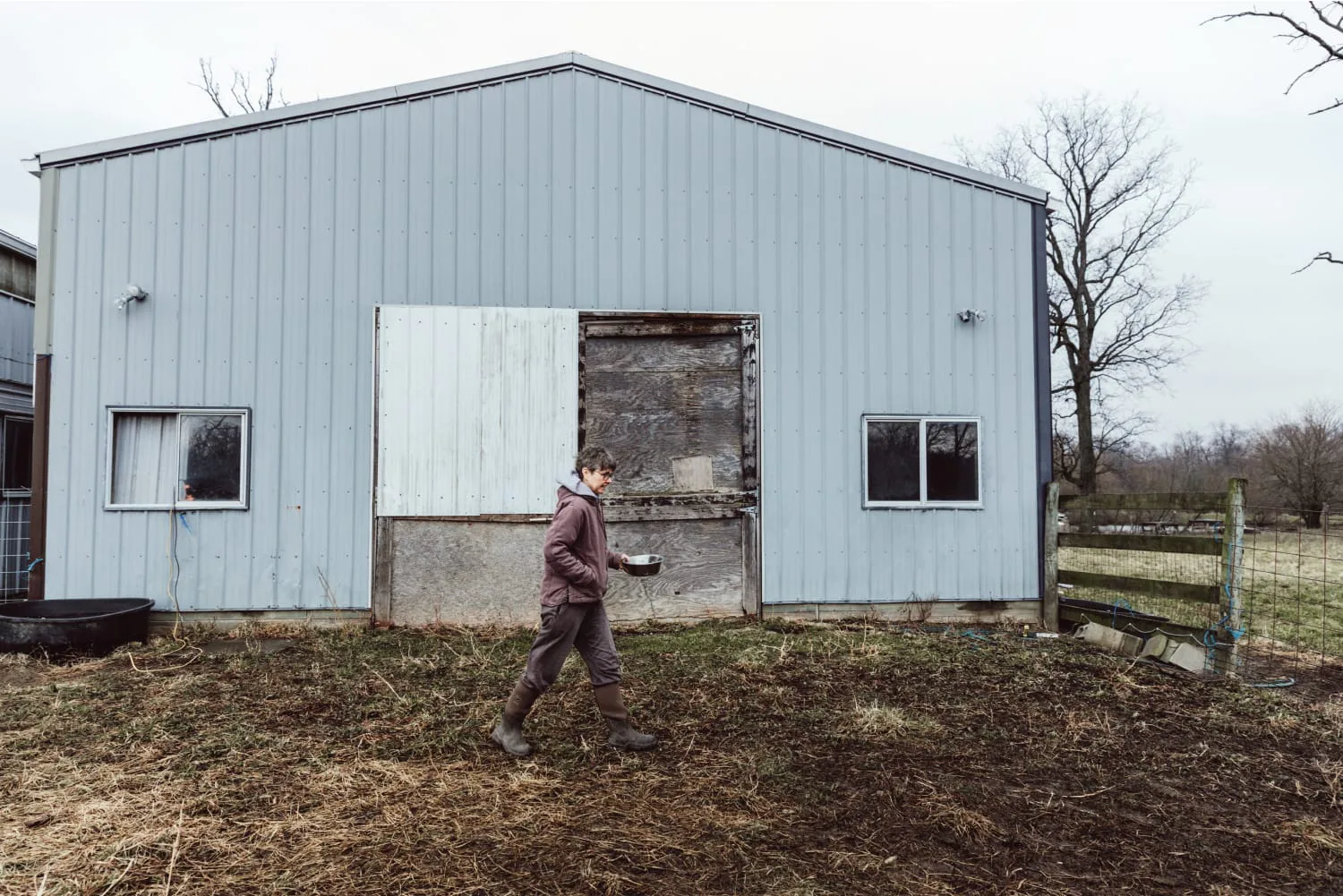
Her early homestead education very much resembled the emergency surgery with her daughter, a constant stream of: Do you know what you’re doing? Nope!
“We have chickens in our car. We can’t let this fall through at this point. Hotels don’t allow chickens.”
But she never let that stop her. She started reading books on homesteading even before they moved to the country. A month before their move-in date she bought 27 baby chicks and kept them in the basement of her suburban house until the move (she does not recommend this).
Those baby chicks were nestled in Deborah’s car, parked outside her realtor’s office, when she and her husband were inside signing closing papers before moving into their new home. When they weren’t sure about some of the stipulations in the paperwork, they thought about turning back – but then they looked outside and realized: “We have chickens in our car. We can’t let this fall through at this point. Hotels don’t allow chickens.”
“That’s a lot of pigs.”
They moved to the country that day to start their new homesteading adventure. “We were completely clueless. Our livestock experience to that point consisted of two cats and a poodle.”
“If I actually wanted to make a living at this I would have to sell 100 pigs a year. That’s a lot of pigs. Do I really want to raise 100 pigs a year?”
When people heard about their Big Move To The Country they assumed Deborah and her husband had grown up on a farm. Nope! Well-meaning friends responded, concerned, “How are you going to know what to do?” Well, Deborah was going to figure it out. “This is what people have been doing since the beginning of time, right?”
Though of course, it was so much harder than she originally thought. “We made tons of mistakes.” But Deborah was not deterred; she made her rookie mistakes and learned from every single one, building up knowledge along the way, and never forgetting what it felt like to start from scratch.
Most of the books she was reading were written by people who already had farm experience, so sometimes their advice was hard to follow. They would often forget to explain things that newbie would need to know in exact detail – things that were second-nature to them because they grew up on a farm.
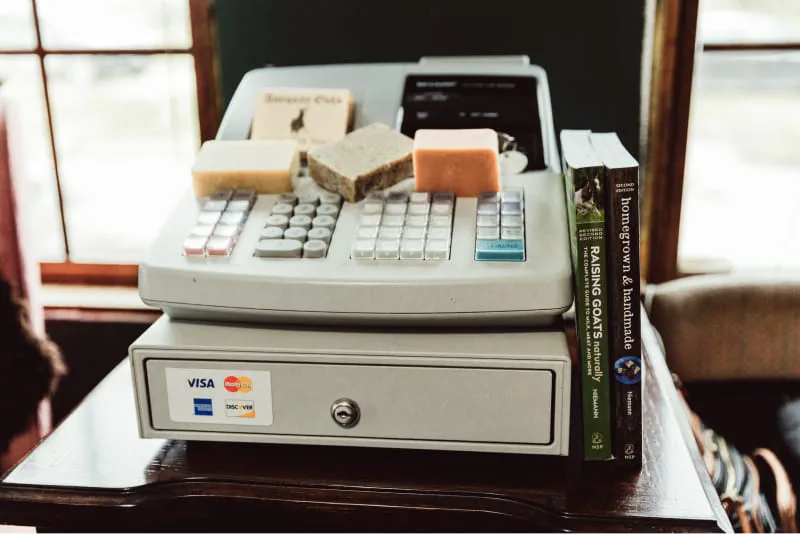
She also noticed a lot of these newbie farmers were making money from their homesteading too. That sounded exciting. She kept learning and started experimenting with ways to make money. That Thanksgiving she sold 36 turkeys.
She got really excited when she learned one pig could sell for $700. “But then you start doing the math and I realized that if I actually wanted to make a living at this I would have to sell 100 pigs a year. That’s a lot of pigs. Do I really want to raise 100 pigs a year? Not really.”
What did Deborah really want to do?
“I think you might have a book in you.”
Her big dream since childhood was to be an author. She’d been writing all her life with this secret dream always in the back of her heart. “When my children were little, I wrote freelance for magazines, and I started writing for the web as soon as the web existed.” She started her first blog in 2006.
She started to become known for her homesteading and would get phone calls like this: “Hey, my friend said that you’re making your own soap. Can you teach me how to do that?”
Deborah’s response? “Sure, come on over.”
“That’s when I finally did the math and realized Oh my gosh, I’d make more money at McDonald’s.”
She had fun sharing her knowledge. People were always on her farm, learning how to make soap or cheese. She also started selling goats, and when buyers would come over to pick one up she’d also spend an hour with each person, teaching them everything about their new goat.
When it got to be too much to do all of that one-on-one, she started doing group farm classes – an old clunky cash register still sits on an antique table in her office, a relic from those days. Her classes were very popular, and she started getting asked to speak and teach elsewhere; in 2010 she was asked to speak about bread at the very first Mother Earth News Fair in Seven Springs, Pennsylvania.
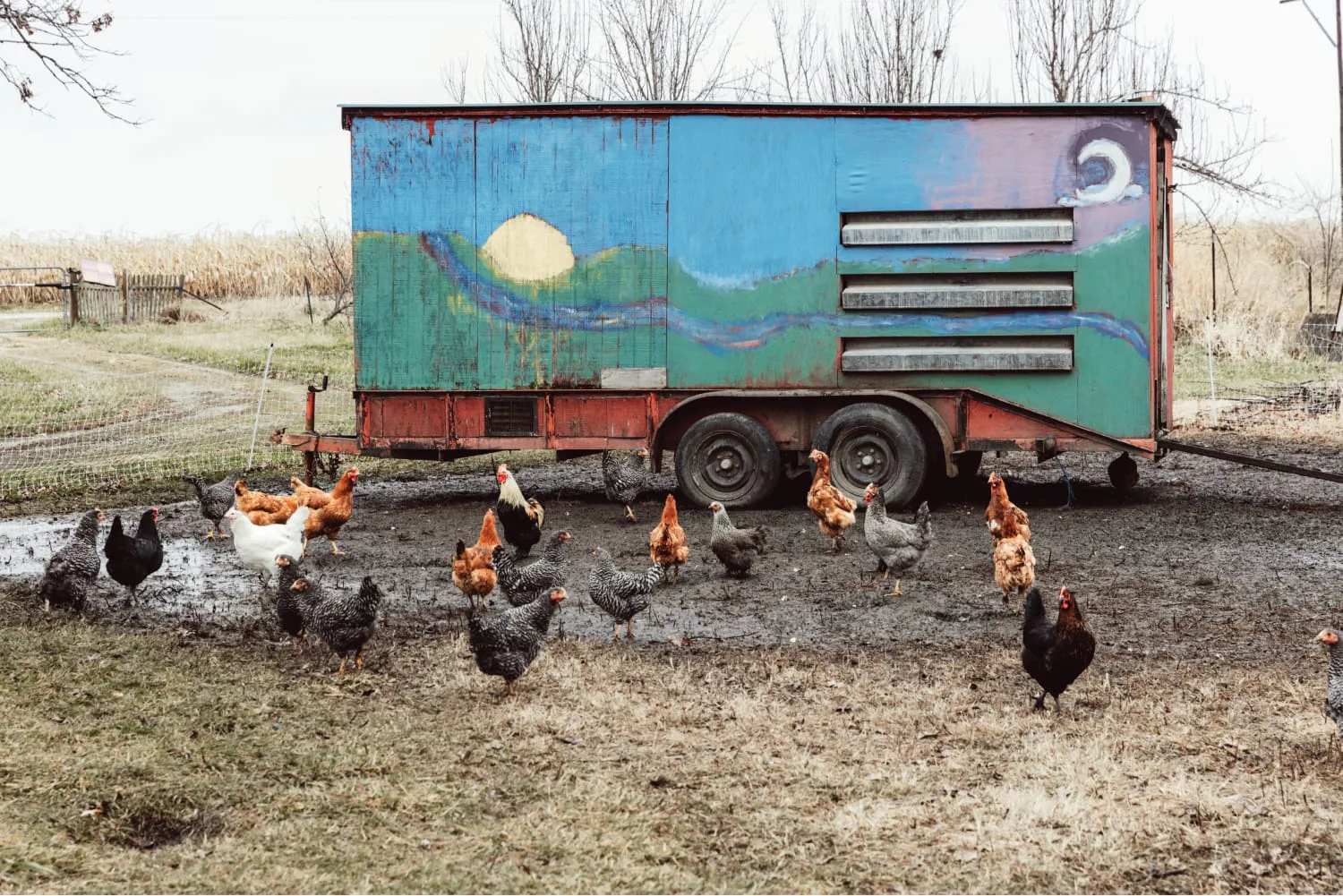
She was so nervous when she walked in the conference room to speak. People were lining the walls – some were even sitting on the floor. It was packed.
A few minutes before it was time for her to step up to the podium, a woman approached her: “Hi, I know you’re about to speak. I don’t want to hijack you, but I just wanted to give you my card. I’m Heather Nicholson from New Society Publishers and I want to make sure I get a chance to talk to you before the conference is over because I’ve read your blog and you’re a great writer and I think you might have a book in you.”
Deborah doesn’t know how she got through her bread talk after that, but she did. She had been dreaming of writing a book for 20 years now. She met with the woman afterwards and was so excited that when the publisher asked, “Do you think you can have it done in three months?” Deborah replied, “Sure!”
She couldn’t even think about the logistics at the time because she was so thrilled. “But afterwards, I told my son and he said ‘Wow, 80,000 words in three months, that’s almost 1,000 words a day.’” That’s when reality hit, but reality never scared Deborah.
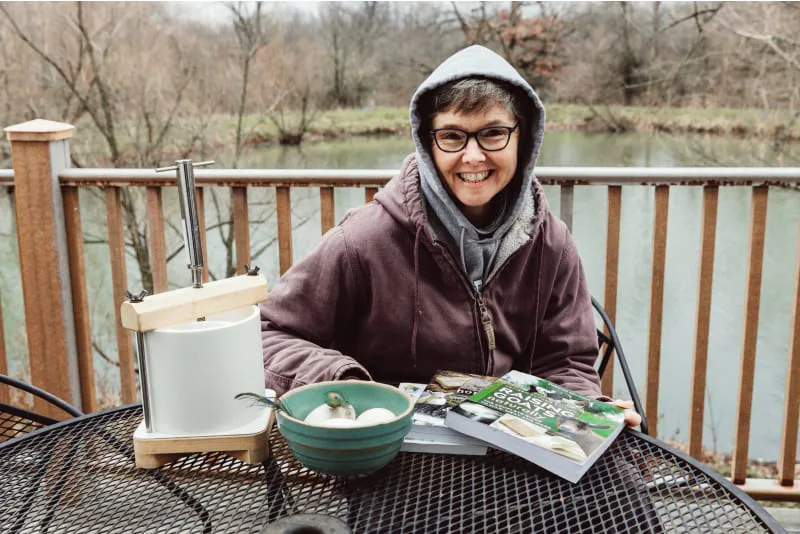
She wrote for 12 hours a day, even during the holidays, and met the deadline; her dream came true. “It was beautiful and wonderful – right up until that part about getting rich and living happily ever after.”
Her childhood author-dream was akin to being a JK Rowling or Stephen King – making a full-time living writing books. “I never stopped to do the math until I was well into writing the second book and I had already signed my contract for the third book. That’s when I finally did the math and realized Oh my gosh, I’d make more money at McDonald’s.”
And her books were doing well. They were selling. But, like the pigs, the math just didn’t quite work. But unlike the pigs, Deborah loved writing.
“I started thinking, There’s got to be another way to make money at this.”
In 2013, she started teaching an online course on raising dairy goats sustainably (the topic of her third book) for the University of Massachusetts. But the math still wasn’t working. “I was working so hard writing books, magazine articles, and teaching an online university course, and I would still make more money in fast food!?”
Up to this point, Deborah was a stay-at-home mom and her husband was the primary income provider. But as Deborah’s kids – and her husband – got older, she felt a renewed motivation to make more income herself. “What if my husband died tomorrow?” Deborah’s husband is a cancer survivor, and she tells me that sadly both of his parents had cancer, and his mom died of cancer. She’s so grateful her husband is healthy today, he even ran a half marathon a couple of months ago, but it’s hard for her to ignore the fear in the back of her mind that one day she could be a widow.
She wanted to know for herself that she could support herself if she needed to. There had to be a better way.
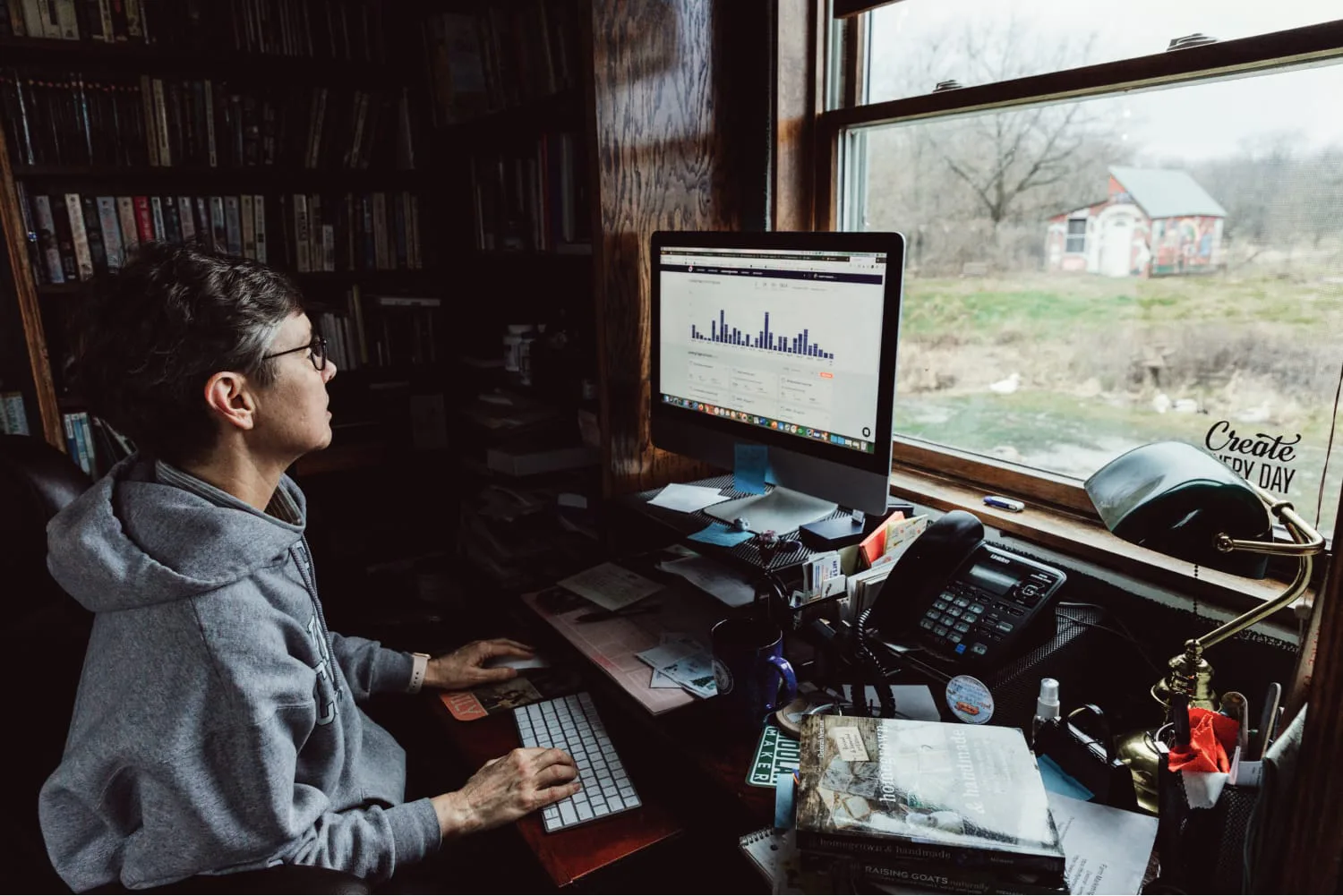
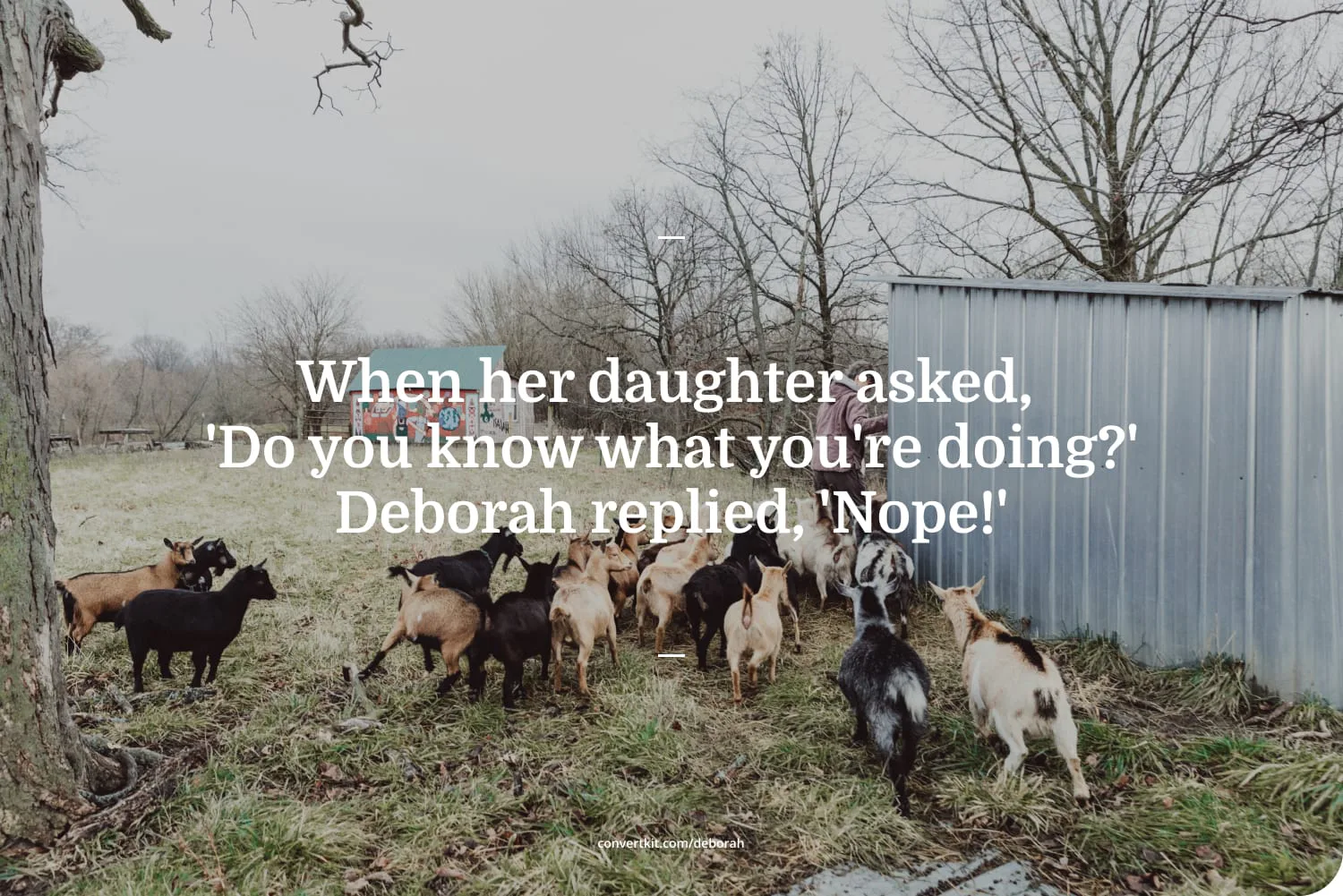
“Just normal people teaching people.”
That’s when Deborah learned about online courses, what she saw as “just normal people teaching people, and not for college credit.” The university courses she was teaching cost $1,000 at the time: “Your average person can’t really afford that.” Online courses would open doors for her to teach even more people – and they wouldn’t even have to come to the farm. She could finally retire that old cash register.
In 2015 she started creating her first online course. She laughs as she remembers the rookie mistakes she made there too. At first she thought she could simply repurpose her university class – but that style of teaching didn’t translate to the online course world. Then, she thought “Oh well I’ll just repurpose one of my on-farm classes.” She asked her son to follow her around and film everything she did during her next class. She would just upload all those videos as her online course.
“As long as the world wants me to talk about goats, I’m going to talk about goats.”
He followed her around all day with his iPhone, but the sound just didn’t work – “an iPhone is fine if you’re in your office, but it doesn’t work if you’re in a barn with animals making a bunch of noise.”
She finally realized she’d have to start from scratch and make videos specific for this new online course.
“Oh my gosh, this is it. This is how you make money online.”
It took her six months to make that first course. She called it “Goats 101.”
Before she launched, she read everything she could about launching an online course (she loved Launch by Jeff Walker). She was also inspired by Justin Rhodes who was in the homesteading online space at the time, selling things like DVD’s on how to raise chickens. He made her think it could be possible for her to do this; she reached out to him asking for advice, and he recommended Nathan Barry’s book Authority.
“Before reading Nathan’s book I had this really crazy idea that I didn’t need to monetize my blog or collect email addresses. I just needed to get a book deal and then the ‘respectable’ way to earn a living is to have people buy your book and then you earn a living from that. But that doesn’t work anymore.”
Deborah finally started collecting emails on her blog – Thrifty Homesteader – in 2016 and was floored when 300 people signed up for her newsletter.

After spending time growing her list, reading up on the best launch strategies, and filming her course, Deborah was finally ready. She launched her course to her email list. Fifty people bought the course right away and she made $3,000 – about the same amount as one year of book royalties. “I was just like Oh my gosh, this is it. This is how you make money online.”
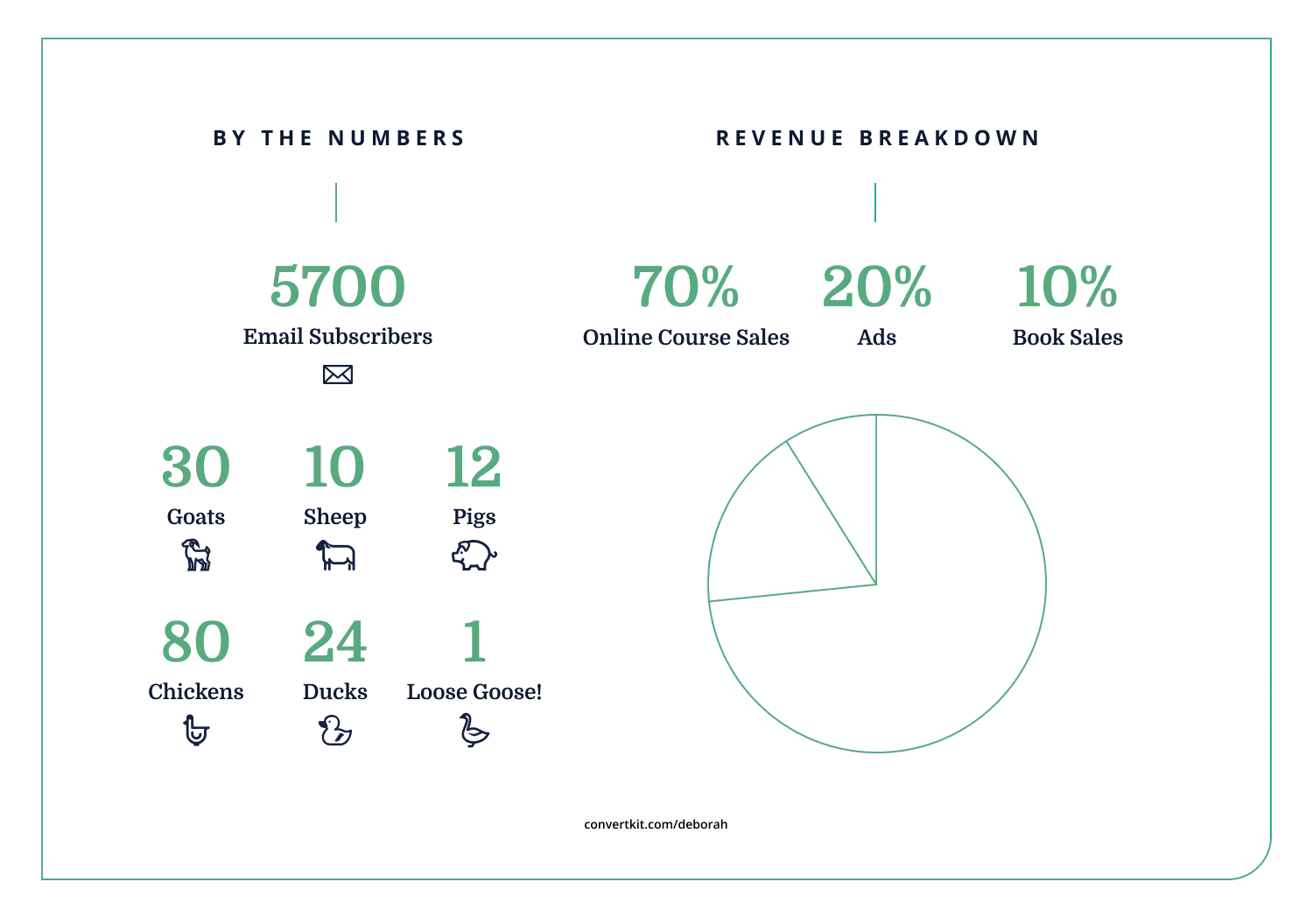
“I’m not worried anymore.”
To date over 3,000 people have taken her goat courses. But what keeps her going as “the goat lady” is the emails she gets that say “you saved my goats’ lives.”
A month ago she got an email that she’ll never forget. It read: “I live in Myanmar, which used to be Burma, and I have an orphanage where I have 35 children that I take care of. I support the orphanage by raising goats. I can’t afford to pay for your course, but my goats keep dying and I was wondering if you can help me.”
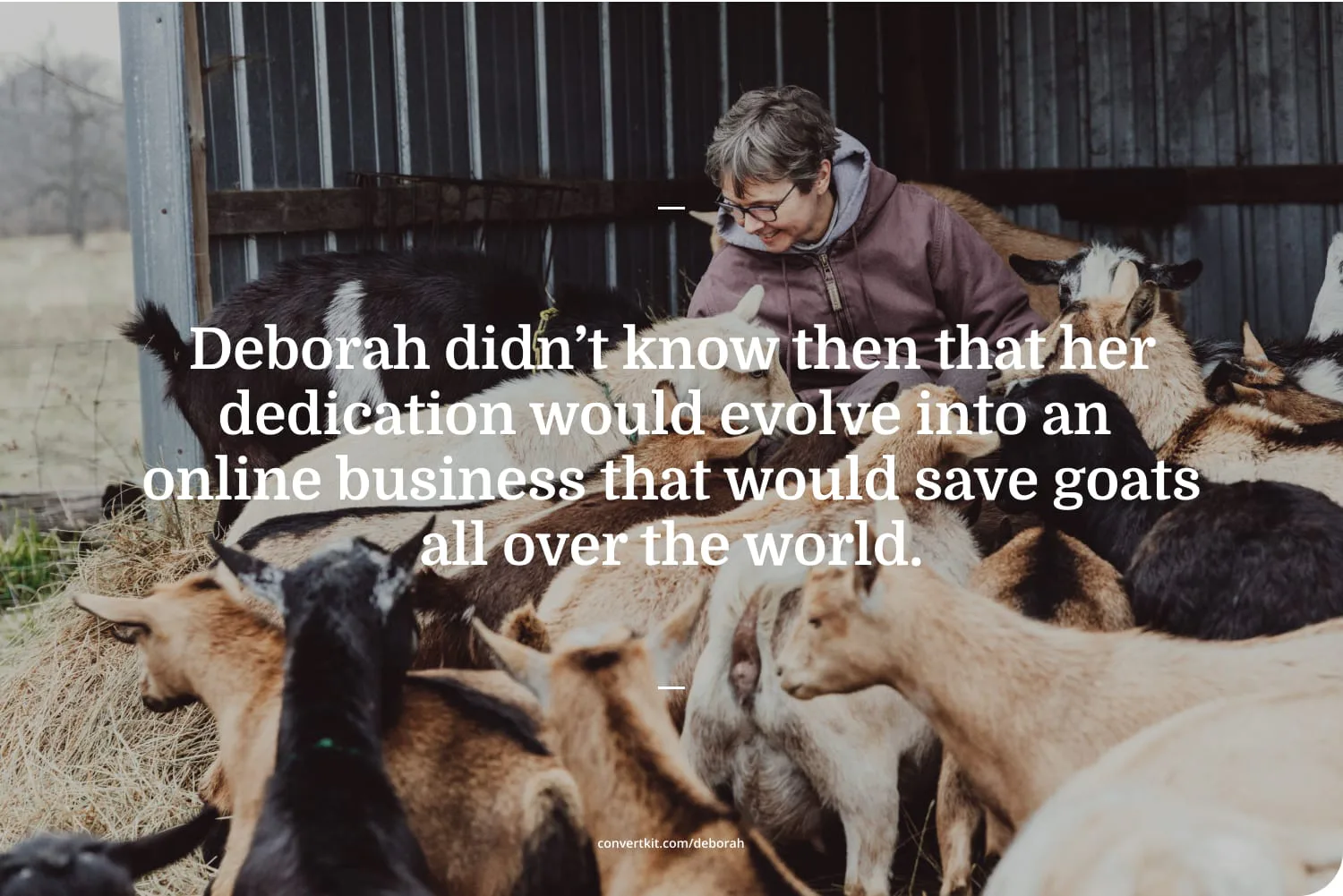
Just like the people who called her up in the early days asking her to teach them how to make soap, Deborah responded immediately: “Of course I’ll help you!”
Her eyes water as she tells me about the impact this man had on the way she started to see her very niche business: “For some people goats are just pets or a business. But for this man, every goat that dies is one less goat he’s going to be able to sell to be able to make money for his orphanage.” Deborah may not focus on goats forever, but “as long as the world wants me to talk about goats, I’m going to talk about goats.”
The goats outside are starting to bleat, saying, according to Deborah, “Let us in!” The sun is casting a bright orange glow above the barn a few acres from her office window as it sets; it’s almost time to let the goats into the barn for the night.
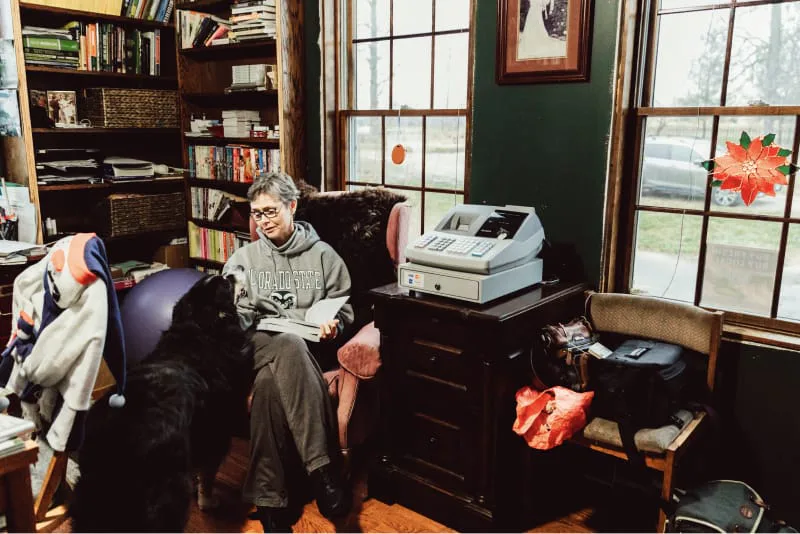
And just above that old cash register is a framed picture of her and her husband on their wedding day, him in a bright white tuxedo jacket and her with permed light-blonde curls puffing out from the top of her veil like a bouquet. I ask her how it feels now to know she can make income on her own: “I’m not worried anymore. I know I can do it, and it’s really empowering.”
